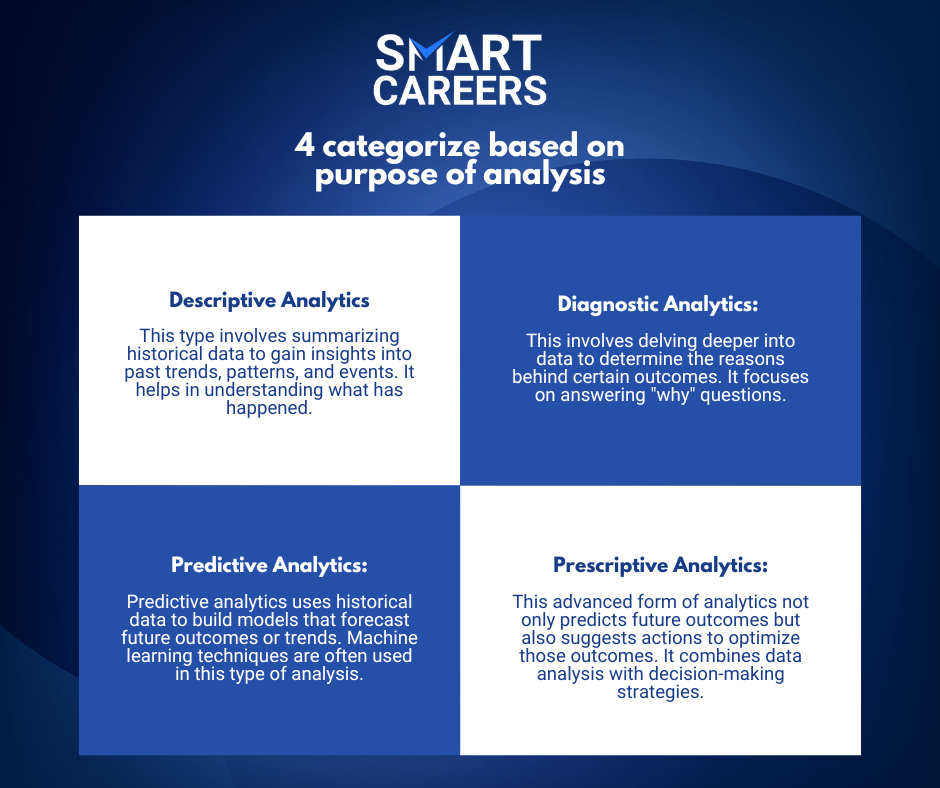
Data analytics is applied in various fields, including business, healthcare, finance, marketing, sports, social sciences, and more. It plays a crucial role in helping organizations make informed decisions, identify opportunities, mitigate risks, and gain a competitive edge. Advanced technologies like machine learning and artificial intelligence have further enriched the capabilities of data analytics by enabling more sophisticated analyses and predictions.
Data analytics can be categorized into different types based on the purpose of analysis:
Descriptive Analytics: This type involves summarizing historical data to gain insights into past trends, patterns, and events. It helps in understanding what has happened.
Diagnostic Analytics: This involves delving deeper into data to determine the reasons behind certain outcomes. It focuses on answering “why” questions.
Predictive Analytics: Predictive analytics uses historical data to build models that forecast future outcomes or trends. Machine learning techniques are often used in this type of analysis.
Prescriptive Analytics: This advanced form of analytics not only predicts future outcomes but also suggests actions to optimize those outcomes. It combines data analysis with decision-making strategies.
